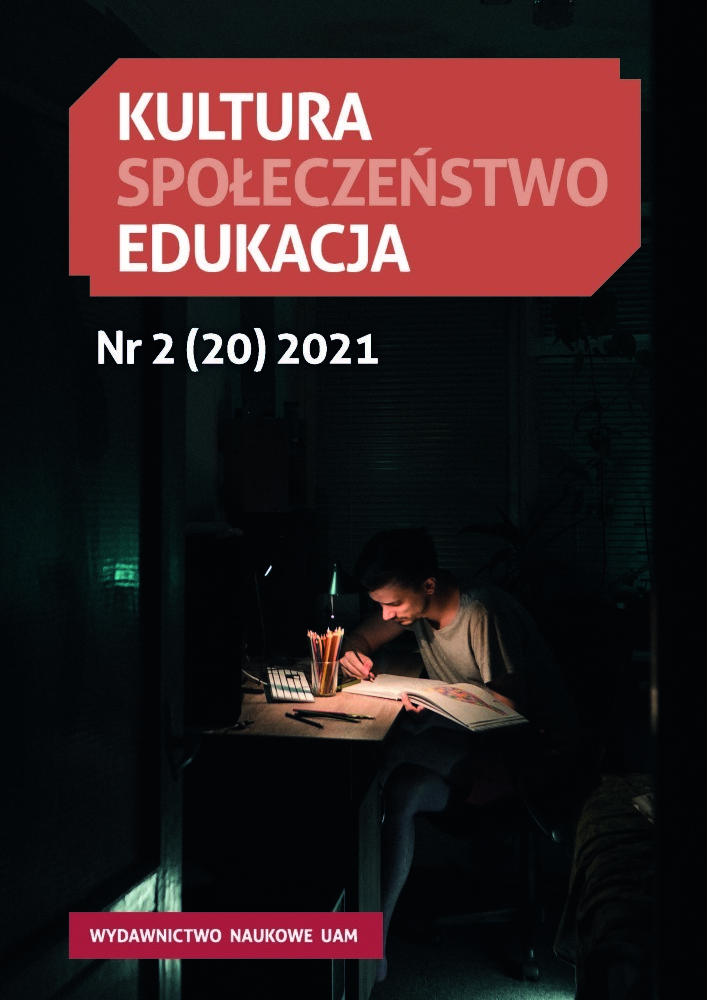Abstrakt
The text, which is part of the new field of social sciences – Donbas Studies, presents partial results of the research carried out in the city of Severodonetsk, which is located in the Lugansk Oblast in Donbas. The author, using the ethnographic method of field research, was looking for an answer to the question of how the process of decommunization in Donbas proceeded, and in particular, how the sense of removing the symbols of communism was negotiated, what aspects of this process turned out to be socially conflicting, and what role young people played in this process? Using the interpretation of metaphors and etymologies, the author states that de-communization in Ukraine, apart from the official imperative of oblivion, brings an element of revenge with it. Thanks to participation in the discussion on the de-communization of young people, it is possible to notice that its field of meaning has been extended to include aspects relating not only to the assessment of the past, but also the current social situation in Ukraine. Thanks to this, de-communization does not only mean an order to forget, but also to remember.
Bibliografia
Bakuła B. (2006), Kolonialne i postkolonialne aspekty polskiego dyskursu kresoznawczego (zarys problematyki), Teksty Drugie, 6(102), s. 11–33.
Beiner G. (2018), Forgetful Remembrance: Social Forgetting and Vernacular Historiography of a Rebellion in Ulster (first edition), Oxford.
Bieńko M. (2013), Intymne i prywatne praktyki codzienności. Studium socjologiczne, Warszawa.
Bonnell V.E. (red.) (1996), Identities in Transition: Eastern Europe and Russia After the Collapse of Communism, Berkeley.
Carroll J.J. (2019), Narkomania: Drugs, HIV, and Citizenship in Ukraine, London.
Chari S., Verdery K. (2009), Thinking between the Posts: Postcolonialism, Postsocialism, and Ethnography after the Cold War, Comparative Studies in Society and History, 51(1), s. 6–34.
Dolgiy S. (2019), Память, http://www.mnogovremeni.com/artwork/Pamiat.html, dostęp: 04.02.2021.
Dunn E.C. (2015), Privatizing Poland, New York.
Geertz C. (2005), Interpretacja kultur: Wybrane eseje, tłum. M.M. Piechaczek, Kraków.
Giroux H.A. (2004), Cultural Studies, Public Pedagogy, and the Responsibility of Intellectuals, Communication and Critical/Cultural Studies, 1(1), s. 59–79.
Hammersley M., Atkinson P. (2000), Metody badań terenowych, tłum. S. Dymczyk, Warszawa.
Hastrup K. (2008), Droga do antropologii. Między doświadczeniem a teorią, tłum. E. Klekot, Kraków.
Herzfeld M. (1987), Anthropology Through the Looking-Glass, Critical Ethnography in the Margins of Europe, New York.
Humphrey C. (2010), The Unmaking of Soviet Life, New York.
Jemielniak D. (2013), Netnografia, czyli etnografia wirtualna – nowa forma badań etnograficznych,Prakseologia, 154, s. 97–116.
Jemielniak, D. (2019), Socjologia Internetu, Warszawa.
Kaleniuk S. (2020), Чому не Світлоград, а Сєверодонецьк, https://sd.ua/news/12833, dostęp: 04.02.2021.
Kolstø P. (2016), Crimea vs. Donbas: How Putin Won Russian Nationalist Support – and Lost it Again, Slavic Review, 75(3), s. 702–725.
Korwin-Piotrowska D. (2011), Poetyka – przewodnik po świecie tekstów, Kraków.
Kudela-Świątek W. (2014), Miejsca (nie)pamięci. O upamiętnianiu ukraińskiego Wielkiego Głodu z lat 1932–1933, Kraków.
Lakoff G. (2017), Moralna polityka. Jak myślą liberałowie i konserwatyści, tłum. M. Szczubiałka, Warszawa.
Lakoff G., Johnson M. (2020), Metafory w naszym życiu, tłum. T. Krzeszowski, Warszawa.
Oushakine S.A. (2010), The Patriotism of Despair, New York.
Pilkington H. (1996), Gender, Generation and Identity in Contemporary Russia, London–New York.
Reeves M. (2014), Border Work, New York.
Rethmann P. (1997), Chto delat’? Ethnography in the Post-Soviet Cultural Context, American Anthropologist, 99(4), s. 770–774.
Rewers E. (2015), Sztuka zapomnienia, [w]: A. Markowska (red.), The Past That Would Not Pass Away. History, Remembrance, Oblivion in the Work of Dorota Nieznalska, Sopot, s. 50–73.
Riabczuk M. (2015), Ukraina, Syndrom postkolonialny, Wrocław–Wojnowice.
Sandlin J.A., Schultz B.D., Burdick J. (red.) (2010), Handbook of Public Pedagogy: Education and Learning Beyond Schooling, New York.
Sanjek R. (red.) (1990), Fieldnotes: The Makings of Anthropology, New York.
Siegień W. (2018), Ukraine’s Wartime Education Reform, New Eastern Europe, 1/XXX, s. 29–35.
Siegień W. (2020), A Tale of Two Collapses, New Eastern Europe, 3/XLI, s. 26–34.
Sulima R. (2000), Antropologia codzienności, Kraków.
Tokarska-Bakir J. (1995), Dalsze losy syna marnotrawnego. Projekt etnografii nieprzezroczystej, Konteksty. Polska Sztuka Ludowa, 49/1, s. 13–22.
Licencja
Prawa autorskie (c) 2021 Wojciech Siegień

Utwór dostępny jest na licencji Creative Commons Uznanie autorstwa – Bez utworów zależnych 4.0 Międzynarodowe.

